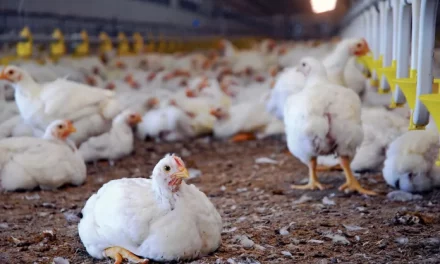
Akufo-Addo Rallies Youth Support For PFJ 2.0 Initiative4 min read


The flagship agricultural programme, led by the Ministry of Food and Agriculture (MoFA), aims to promote food security and create employment opportunities in the agricultural sector. PFJ 2.0 has therefore been specifically designed as a bold, innovative and comprehensive approach to tackle head-on the hurdles of food security.
The underpinning model, according to MoFA), is the Input Credit System envisioned to address a number of critical challenges: namely access to credit; quality of agro inputs; unstructured markets for agricultural produce; and low mechanisation, among others.
It is against this background that the president, speaking about the programme, emphasised the importance of youth-led innovations to tap benefits offered by the programme. He said: “The expanded opportunities for the youth are inherent in the programme’s design, which focuses on value-chain development”.
He entreated youths to take advantage of these opportunities to rally around this initiative and form cooperatives and partnerships to obtain maximum benefits from the programme. “In the face of limited resources, forming partnerships is the best way to mobilise resources on a bigger scale for productive ventures.”
It is understood that by working together and forming partnerships, young entrepreneurs and farmers can leverage resources, knowledge and expertise to maximise the benefits of this programme. This not only contributes to food production but also stimulates economic growth and reduces youth unemployment in the country.
“What’s also reassuring is that the Planting for Food and Jobs second phase, in addition to promoting large-scale production, addresses the issue of marketing through off-taker arrangements as part of an import-credit module introduced under the new programme. It will surely mitigate post-harvest losses and the risk associated with farming,” added the president.
President Akufo-Addo was speaking at the maiden ‘Presidential Conference on Agriculture’ in Accra, and emphasised that sustaining the country’s agriculture depends on the youth – counting on their vibrancy, fresh ideas and innovation to improve the nation’s collective fortune.
He said the platform created by the conference is a valuable step toward harnessing the youths’ potentials to address challenges in the agricultural sector. This, among others, is hoped to ensure the sustainable development of agriculture.
The Presidential Conference on Agriculture was also used to launch the ‘Youth in Agric’ initiative in Accra, aimed at making farming attractive to the youth – in addition to making the country food-sufficient under PFJ 2.0.
This initiative is led by the Youth Employment Agency (YEA) in partnership with the MoFA.
Also speaking at the conference, Minister for Food and Agriculture, Bryan Acheampong, indicated that under the Youth in Agric programme being done with the YEA, some 200,000 youths are targetted to be positioned permanently in the agricultural sector.
Each individual under the programme is expected to cultivate an average farm size of 10 acres. This means a total 400,000 hectares of arable will be under cultivation.
He said: “The target commodities for this intervention include maize, rice and vegetables. However, if we put all the 400,000 hectares of land under rice cultivation alone, we will exceed our food self-sufficiency production target of 1.8 million metric tonnes in two years instead of the five years planned under the PJF programme”.
In addition to land already secured by YEA, the Agric Minister stated that MoFA intends to make lands available from the agricultural zones and economic enclaves to be established under the PFJ programme.
He also disclosed that President Akufo-Addo has appealed to the National House of Chiefs to release lands for the youth in agriculture. This engagement is beginning to yield great results.
In addition to job creation, he said, the funding mechanism of PFJ 2.0 will significantly change the financial well-being of participating youth farmers.
Touching on the Akosombo Dam spillage, he announced that he has directed US$40million of the World Bank-funded FSRP to be restructured and fully restore those whose farms have been wiped out.
The Minister for Employment and Labour Relations, Ignatius Baffour-Awuah, emphasised the importance of agriculture in addressing youth unemployment.
He cited research indicating that agriculture requires less investment to create jobs compared to the services and industrial sectors, making it a valuable avenue for youth employment.
He also noted the aging population of Ghanaian farmers, and expressed hope that the Presidential Conference on Agriculture will help generate interest in the agriculture sector by providing training, resources and mentorship to the youth involved in agricultural value chain activities.


















